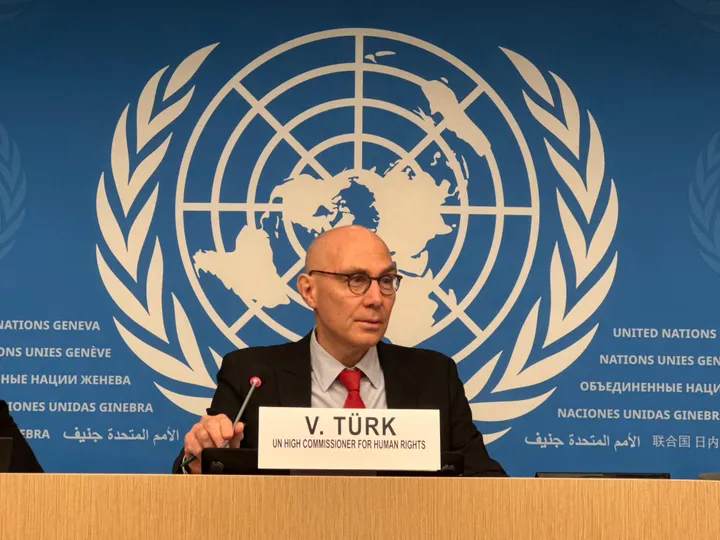More than 120 countries defied President Donald Trump on Thursday and voted in favour of a United Nations General Assembly resolution calling for the United States to drop its recognition of Jerusalem as Israel’s capital.
Trump had threatened to cut off financial aid to countries that voted in favour. A total of 128 countries backed the resolution, which is non-binding, nine voted against and 35 abstained. Twenty-one countries did not cast a vote.
A spokesman for Western-backed Palestinian President Mahmoud Abbas called the vote “a victory for Palestine” but Israeli Prime Minister Benjamin Netanyahu rejected the vote.
TRT World's Alican Ayanlar reports from the occupied East Jerusalem.
Speaking at the General Assembly ahead of the vote, Turkey’s Foreign Minister Mevlut Cavusoglu criticised the US and said it is unethical to think the votes and dignity of member states are for sale.
“You can be strong, but this does not make you right,” he said. “A UN member threatened all other members. We were asked to vote no or face the consequences,” Cavusoglu said.
“Turkey will never let Al-Quds down. The Palestinian people will never be left alone. The world is bigger than five,” he said.
Palestinian Foreign Minister Riad Malki also criticised the Trump administration in his address at the UN General Assembly saying that its decision will not impact the status of the holy city but has affected the status of US as a mediator of peace.
"An aggression on the status of Jerusalem which religious and humanitarian status that is exceptional and would like to confirm that the American decision will not impact the status and position of the holy city in any way whatsoever," Malki said.
French UN Ambassador Francois Delattre said in a statement: “The resolution adopted today only confirms relevant international law provisions on Jerusalem. This vote must not divide or exclude.”
Earlier this month, Trump reversed decades of US policy by announcing the United States recognised Jerusalem as the capital of Israel and would move its embassy there.
Ahead of Thursday’s vote, the United States said it was “singled out for attack” at the United Nations over Jerusalem, which holds Muslim, Jewish and Christian holy sites.
“The United States will remember this day in which it was singled out for attack in the General Assembly for the very act of exercising our right as a sovereign nation,” US Ambassador to the UN, Nikki Haley, told the 193-member General Assembly.
“We will remember it when we are called upon to once again make the world’s largest contribution to the United Nations, and so many countries come calling on us, as they so often do, to pay even more and to use our influence for their benefit,” she said.
The status of Jerusalem is one of the thorniest obstacles to a peace deal between Israel and the Palestinians, who were furious over Trump’s move. The international community does not recognise Israeli sovereignty over the full city.
The vote was called at the request of Arab and Muslim countries. The United States, backing its ally Israel, vetoed the resolution on Monday in the 15-member UN Security Council.
The remaining 14 Security Council members voted in favour of the Egyptian-drafted resolution, which did not specifically mention the United States or Trump but which expressed “deep regret at recent decisions concerning the status of Jerusalem.”
Among the countries that abstained on Thursday were Australia, Canada, Mexico, Argentina, Colombia, Czech Republic, Hungary, Poland, Philippines, Rwanda, Uganda and South Sudan.
Australian UN Ambassador Gillian Bird said Australia wanted to see the United States continue to play a leadership role in brokering peace and abstained from the vote because, “We do not wish to see any party isolated from the process.”
“There is much in this resolution with which we agree,” Bird told the General Assembly after the vote. “We do not, however, consider that this further resolution...helps bring the parties back to the negotiating table.”























